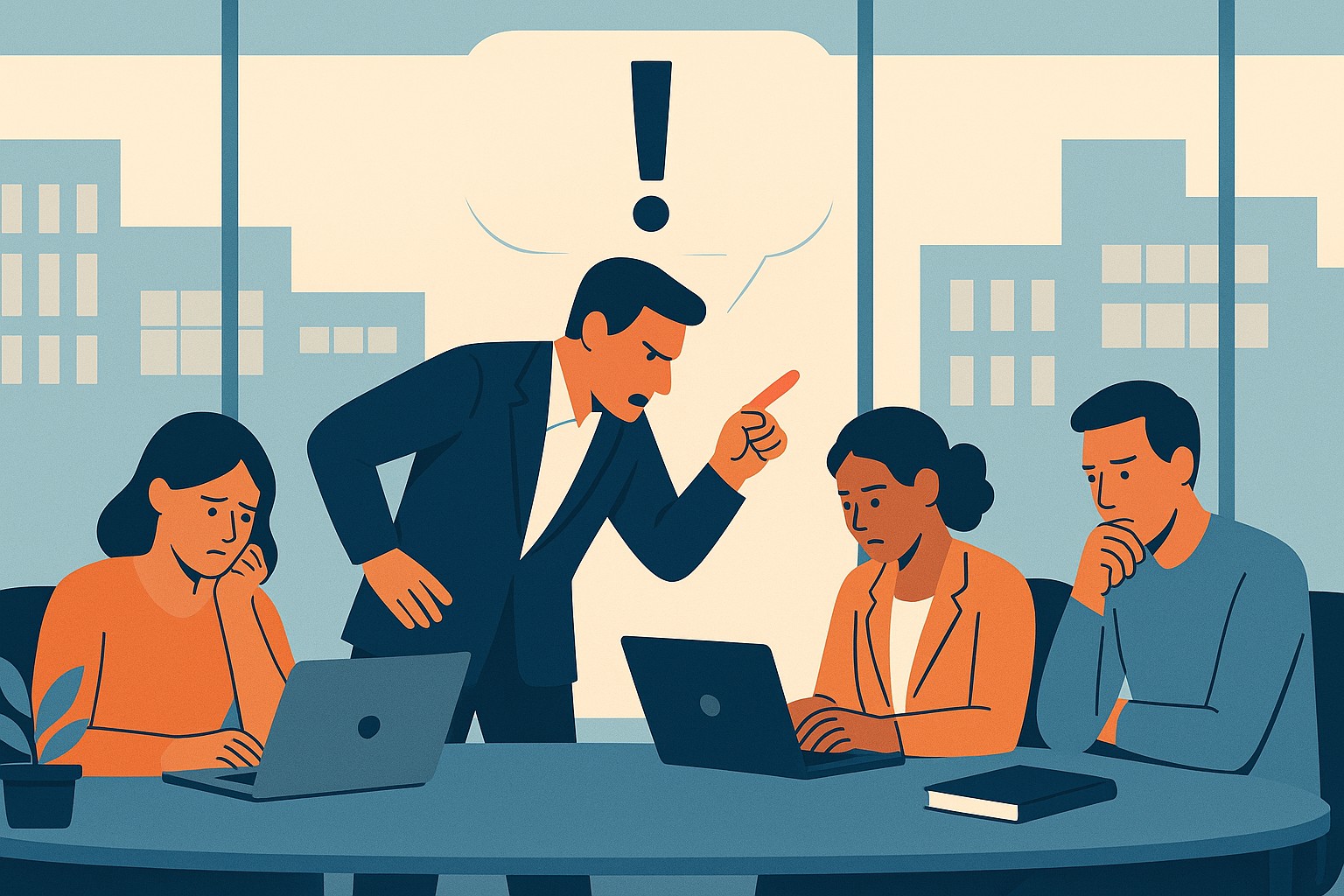In many workplaces, there are people who act like they always know the answer. No matter the topic, their voice must be the loudest. Their opinion must be the final one. At first, it may seem like confidence or expertise. But over time, this behavior becomes damaging, not only to colleagues but to the entire culture of a company.
This article explores the deeper impact of dismissive language, controlling behavior, and the need to appear infallible. It also explores the long-term psychological effects that can shape both the individual and the organization.
 The Behavior: Dismissal, Control, and Micro-Management
The Behavior: Dismissal, Control, and Micro-Management
People who act like they know it all often use subtle patterns in communication:
- Interrupting before others finish speaking
- Dismissing suggestions with short phrases such as “We tried that already” or “That won’t work”
- Giving instructions instead of asking questions
- Making decisions without consulting those affected
- Monitoring work at a level that feels suffocating
They may not see these actions as harmful. To them, they are simply being efficient, experienced, or “leading.” But what they are really doing is sending a clear message:
Your input does not matter as much as mine.
Impact on Company Culture
Culture is shaped by repeated behavior. When dismissal and control become normal, the workplace shifts in several ways:
- People Stop Contributing
When employees try to speak and are ignored or corrected repeatedly, something changes in them. They learn to stay quiet. They stop offering new ideas. The company loses innovation long before anyone notices the silence.
- Fear Replaces Collaboration
Instead of a sense of shared purpose, a quiet tension develops. People avoid conflict. They avoid speaking up. They avoid taking risks. The environment becomes “safe” but not in a positive way. It becomes safe to stay invisible.
- Talent Leaves
People who are passionate, curious, and engaged cannot thrive in a place where their voice is not valued. They leave. The company keeps the ones who comply, not the ones who create change. This weakens the foundation of the organization over time.
The Psychological Effects on Individuals
The long-term emotional impact is often underestimated. Working under someone who always has the final word can create:
- Self-doubt
- Decreased confidence in one’s skills
- Anxiety about making mistakes
- A belief that ideas are not worth sharing
- Emotional exhaustion
Employees may begin to internalize a message that was never spoken but repeatedly demonstrated:
You are not capable.
This affects not just work performance but how individuals see themselves in other areas of life, including relationships and personal decisions.
The Cost to the Company
The effects become visible in measurable ways:
- Higher turnover
- Low morale
- Weak teamwork
- A decline in creativity and problem solving
- Resistance to change
- Slow progress despite constant busyness
A company may look organized on the surface but struggle to evolve. It becomes rigid. It becomes predictable. Eventually, it falls behind.
Why People Act This Way
It is important to understand the root cause. People who act like they know everything are rarely motivated by confidence. More often, they are driven by:
- Fear of being wrong
- Fear of being perceived as unqualified
- Past environments where vulnerability was punished
- A belief that authority must be protected
They are not trying to harm others. They are trying to protect themselves.
Recognizing this does not excuse the behavior, but it allows change to start from understanding rather than blame.
How Change Begins
Real change does not require confrontation. It requires clarity and space.
- Leaders need to model listening instead of instructing.
- Meetings should allow equal voice time.
- Mistakes should be treated as shared learning, not failure.
- Feedback should be honest but not aggressive.
- Employees should be encouraged to ask questions and challenge assumptions.
A healthy culture does not silence strong voices. It allows every voice to exist.
The Company That Grows Is the Company That Listens
A workplace where people feel heard becomes a place where they bring their best selves. People feel a sense of ownership. They feel pride. They work with more energy and purpose, not because they are told to, but because they feel valued.
No one needs to be perfect. No one needs to know everything.
The strongest leaders are not the ones who speak the most. They are the ones who know when to listen.

